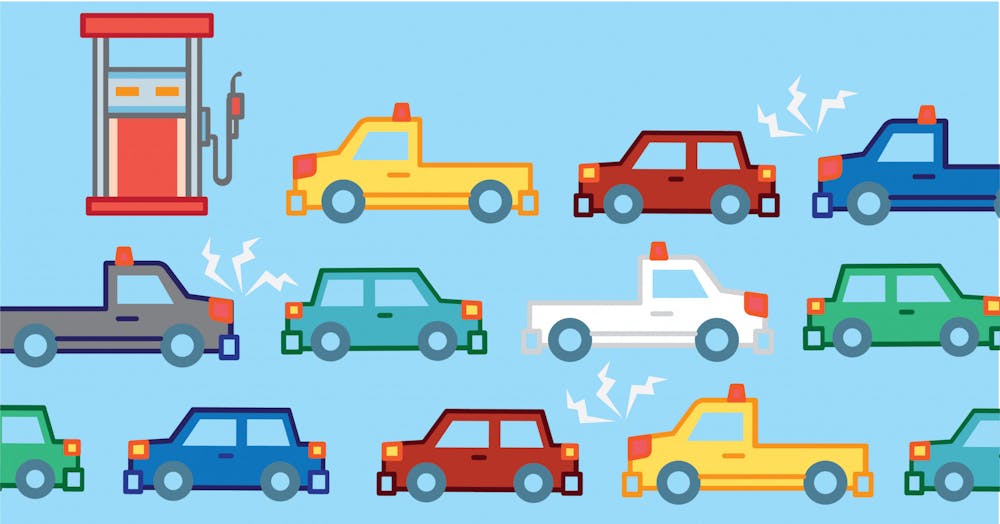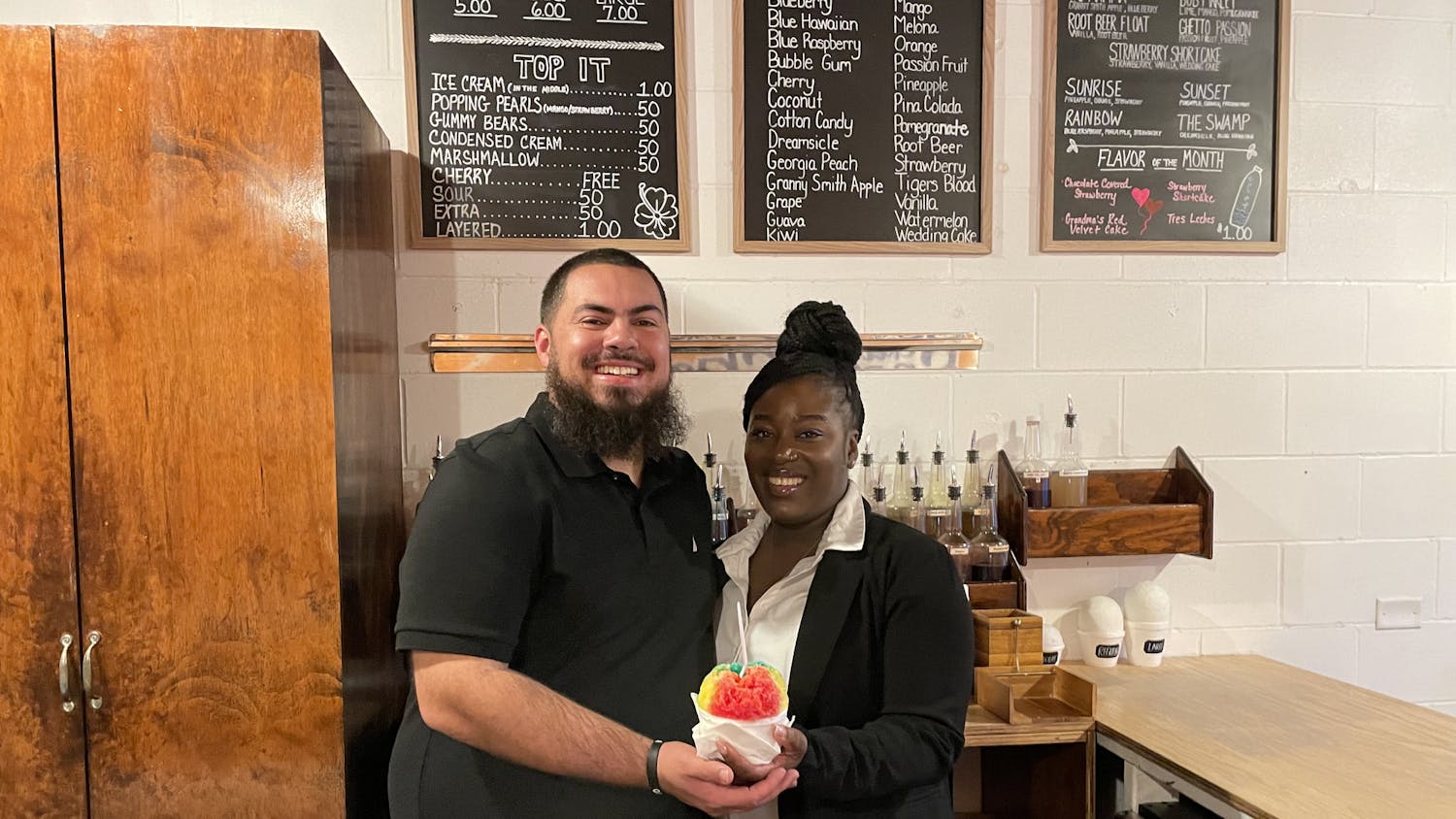Bright yellow plastic bags, long lines of cars and impatient customers — Gennavieve Conver has endured it all.
The largest oil pipeline in the United States temporarily shut down on May 7 due to a ransomware cyberattack. The shutdown generated panic as gasoline shortages sprang up along the East Coast. Gov. Ron DeSantis declared a state of emergency on Tuesday.
Conver, 24, works as a lead customer service representative at the Circle K on Southwest 34th Street in Gainesville and has dealt with the response to the Colonial Pipeline shutdown firsthand.
In Alachua County, panic buying caused a gas shortage. Though county officials said the fears are unfounded, consumers continued to hoard gasoline and drive up demand.
Conver said the excessive consumption disrupted the gas station’s supply.
“We get a set amount of fuel that is supposed to last us a certain amount of time,” she said. “That is no longer happening because people are panic-buying fuel.”
Daily routines have also been disrupted.
“We get interrupted very frequently by people calling us to ask if we have gas,” Conver said. “We've had customers come in, complain and get angry at us.”
Safety concerns also arose when people started pumping gas into unsafe containers. According to Conver, as licensed fuel operators, employees must call emergency services for fuel spills over 25 gallons.
Alachua County Emergency Management urged citizens not to hoard gasoline.
“It’s really important to assess the situation before doing things like hoarding gas or filling up extra gasoline canisters because we aren’t serviced by the pipeline here,” Alachua County Emergency Management Acting Director Jen Grice said.
Grice said several gas stations in the county did not have as much gas as they normally would because of the increased demand, resulting in an abundance of people waiting to get gas.
Most of Gainesville’s fuel comes from the ports of Tampa and Jacksonville, Grice said. Florida gets most of its gas from Gulf Coast refineries while only 3% of Florida’s annual 12 billion gallons of gas comes from Colonial Pipeline, which restarted operations Wednesday.
Despite Gainesville not being directly affected by the pipeline shut down, panic buying did not wane. At the Circle K on Southwest 34th Street on Wednesday, yellow bags covered almost all the pump handles at the gas station, indicating no fuel availability.
Grice said people should be more receptive to officials and experts to make informed choices about their gas consumption.
“The number one thing is to listen to trusted, verified sources of information, which would typically be your government or other agencies who are subject matter experts on a particular topic,” Grice said.
Tiffany Trentski, a 41-year-old environmental scientist, said she saw similar hoarding of products at the beginning of the COVID-19 pandemic.
“Fear begets fear,” she said. “You see someone at the gas station filling up several gasoline containers, and then that’s gonna inspire other people to get gasoline containers and hoard it for themselves.”
As a Gainesville resident who commutes 40 minutes to work, Trentski said she had to be more conscientious about driving.
“I’ve had to be very careful in trying to push back my field days, times when I need to drive my car and sometimes grouping and driving with employees,” she said.
Trentski said people should make informed decisions and consider the impact of their individual choices.
“If we just pause to think proactively based on facts and empathetically what’s best for us as a community as a whole instead of individuals, then nobody would be short on gas.”
Contact Phong Huynh at phuynh@alligator.org. Follow him on Twitter @phongphont.






